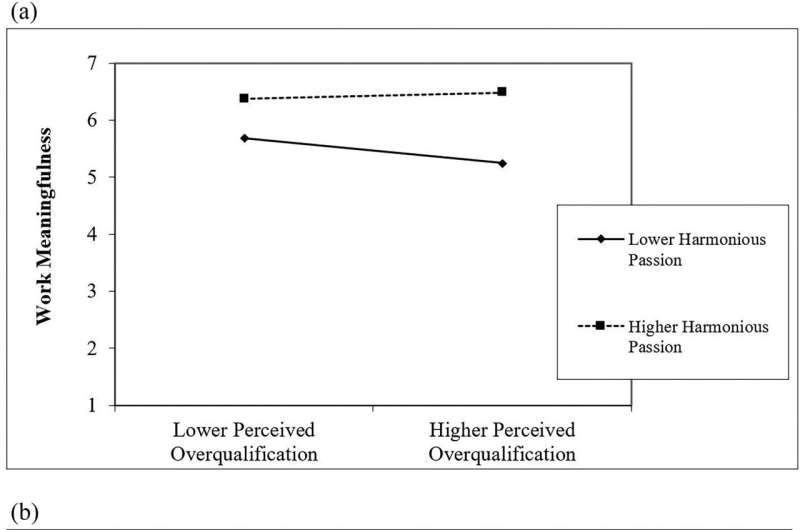
Overqualified employees can fulfill their career potential if they have the right passion for their work, according to new research by The University of Western Australia.
The paper, published in Applied Psychology, was co-authored by Associate Professor Alex Luksyte and senior lecturer Joseph Carpini from UWA’s Business School.
The research investigated the role “harmonious” and “obsessive” work passion played in unlocking overqualified employees’ potential. Harmonious passion means work is seamlessly integrated into one’s identity and balanced with other life domains. Obsessive passion is derived from external pressure and characterized by a compulsive need to work.
In Australia and the U.S., one-third of workers feel overqualified which can have negative consequences for their careers, according to reports published by the National Center for Vocational Education Research and in Forbes.
“When unemployment levels increase, so too does the number of applicants for each job and that includes workers who may feel overqualified for the role,” Associate Professor Luksyte said.
“Despite having more knowledge, skills, and abilities to do their job, overqualified employees may also become bored and voluntarily quit to find better fitting employment.”
The researchers conducted two studies, one involved registered surgeons and the other various professionals. The first looked at career turnover among surgeons; and the second study also included career performance as another indicator of subjective career success.
“In both studies, employees who felt overqualified, and scored lower on harmonious passion, were more likely to consider quitting their careers because they did not experience meaningfulness in their work,” senior lecturer Carpini said.
“Overqualified employees with higher harmonious passion felt they were doing meaningful work, wanted to stay in their careers and thought they were achieving important career goals. Harmonious passion—as opposed to obsessive passion—was an important factor in both cases.”
The results suggest psychometric testing in selection or career counseling could include a measure of harmonious passion, particularly when employees think they are overqualified.
Assessing harmonious work passion may be helpful when coaching, mentoring, or planning developmental activities for all employees but those overqualified in particular.
“Employees who feel overqualified and score higher on harmonious passion are likely to derive personal meaning from their work and view their careers positively,” Associate Professor Luksyte said.
More information:
Aleksandra Luksyte et al, Perceived overqualification and subjective career success: Is harmonious or obsessive passion beneficial?, Applied Psychology (2024). DOI: 10.1111/apps.12539
Citation:
A harmonious solution to career success for overqualified employees (2024, April 23)
harmonious-solution-career-success-overqualified.html
.
. The content is provided for information purposes only.
